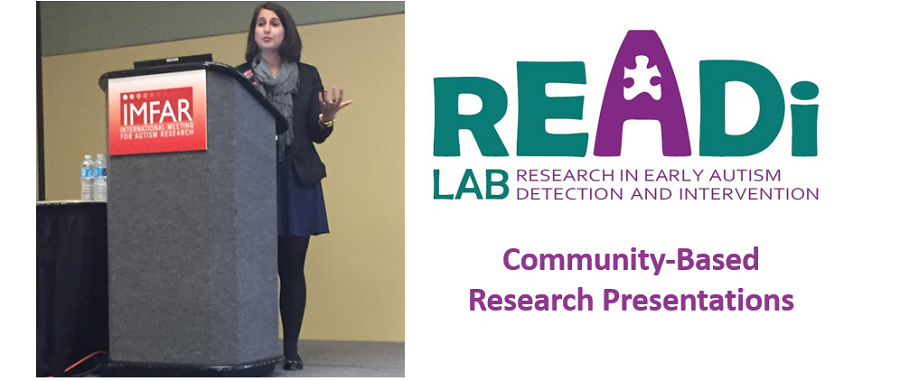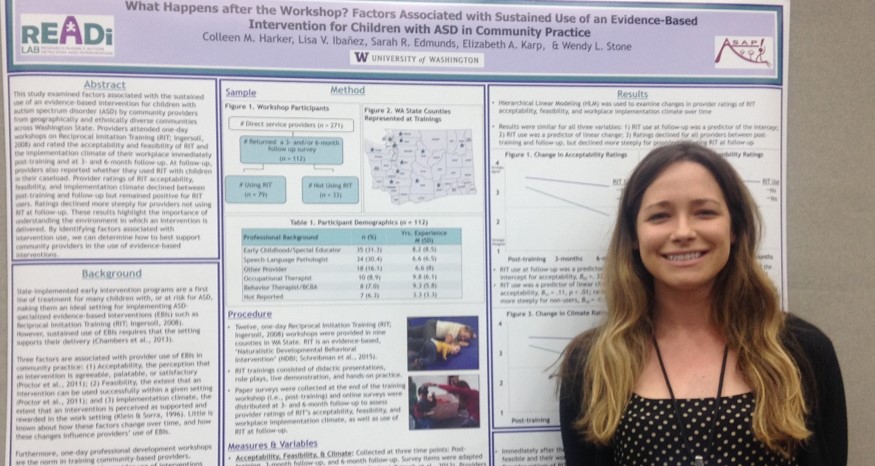Last week at IMFAR, clinical psychology graduate students Lizzy Karp and Colleen Harker presented data collected from service providers in Washington State who attended our ASAP! workshops on Reciprocal Imitation Training (RIT).
Lizzy gave an oral presentation that was part of a panel on improving early access to autism screening and specialized services. She described service providers’ (n=128) perceptions of obstacles that families face as they navigate three stages of the service delivery system: (1) obtaining a referral for an ASD diagnostic evaluation; (2) obtaining the diagnostic evaluation; and (3) obtaining ASD-specialized intervention. Limited capacity to serve families in need was one obstacle reported for all three stages; other obstacles were family factors such as knowledge about ASD, hesitance to acknowledge a problem, cultural differences, and finances. At the intervention stage, additional barriers were family logistical constraints and difficulty navigating complex systems. The obstacles endorsed by providers were predicted by their years of experience working with families with ASD, their work setting, and the characteristics of the community in which they worked.
Colleen gave a poster presentation that compared changes in ratings of RIT acceptability, feasibility, and implementation climate over three time points for service providers who were (n=79) and were not using RIT at follow-up (n=33). Ratings declined for all 3 categories from post-training to a 6-month follow-up), but declined more steeply for providers not using RIT at follow-up. Although providers find RIT to be acceptable and feasible and rate their work climate as supportive immediately after the workshop, real world application of the intervention may present challenges that temper these ratings and providers’ subsequent use of RIT. Community providers may require additional support within their work settings in order to use new evidence-based interventions with children in their caseload. To see the poster for yourself, click here!
Stay tuned to learn about the technology-based studies we presented at IMFAR!

